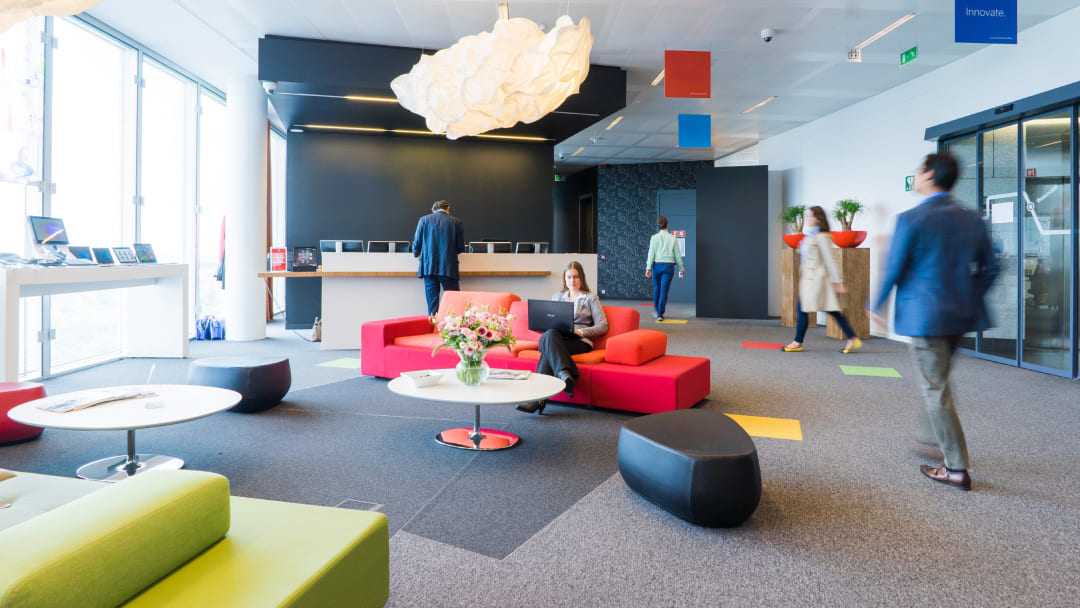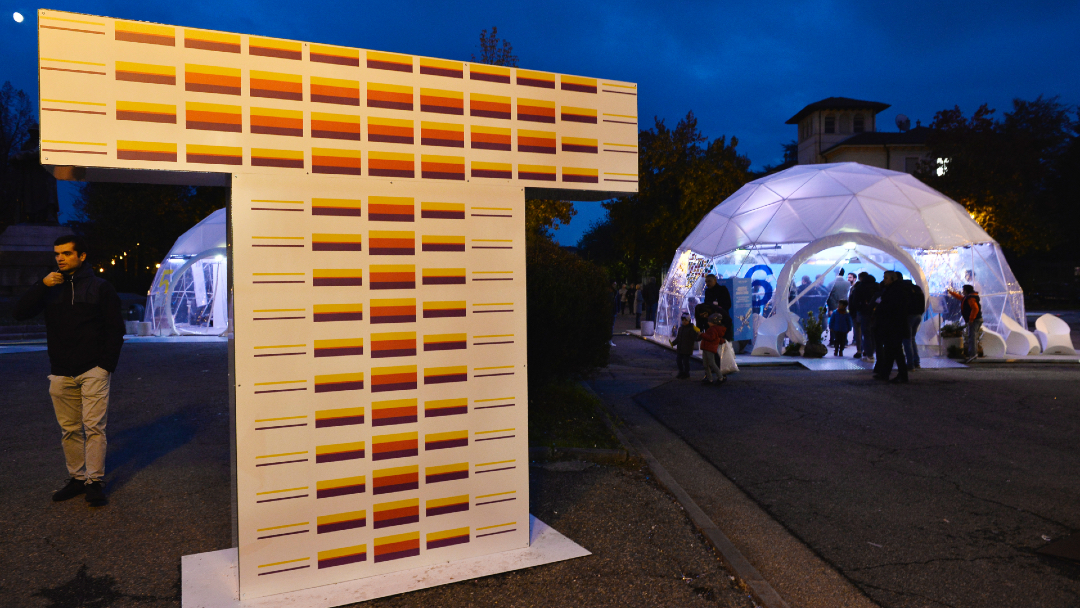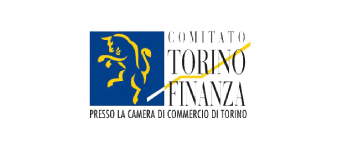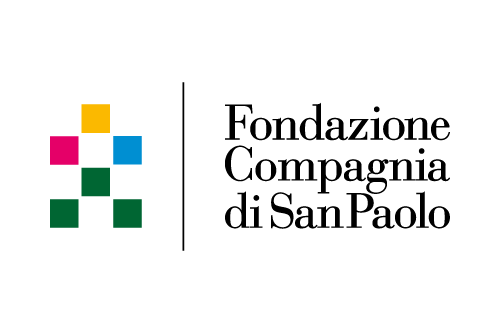Turin distinguished itself as an important industrial center, between the 19th and 20th centuries, due to the presence of several factories and companies in the automotive, textile, and engineering sectors.
The housing-banking crisis and the credit market
Between 1889 and 1892 there was a building-banking crisis that affected the entire nation and also had an impact on Turin's credit market. The crisis in Turin resulted in a series of negative consequences for the city and its population:
- Factories close and many workers lose their jobs.
- Social tensions developed between the working classes and the ruling class, leading to strikes and protests.
- Consensus toward the government and the political parties in power declines sharply as they are perceived as incapable of addressing and resolving the situation.
After 1894, a gradual economic recovery began to be seen in Turin, thanks to the diversification of local industry. By virtue of the fact that Turin's business community, already in the late 1800s was engaged on several fronts, local lending institutions did not limit their sphere of action.
The Bank of Turin does not stick solely to the construction sector (in contrast to the Banco sconto e sete) and adopts a multi-sector strategy. Its interest covers transportation enterprises (Western Steam Tramways of the Province of Turin, Tramways and Economic Railways, Mantua-Modena Railway) and different sectors (Italian Paper Mill, Società anonima Cirio, Monte Promina Coal Company).
In 1894, this foresight allowed it, in liquidation, to remain active and to be able to transfer its capital to other, more prosperous enterprises, such as the "Bonifiche ferraresi."
Diversifying investments is always the best choice
Diversification of investments seems to be one of the reasons why the Turin economy has been safeguarded. Those lending institutions that have decided to invest in construction have done so by acquiring modest or minority stakes within a prudently multi-sector portfolio.
By sustaining and indulging attitudes marked by prudence, the Turin marketplace is able to safeguard most capital at a decidedly complicated time in history.
Protecting their investments is a must for the Turin bankers of the time, who aim to share the commitment with the big banks: for riskier investments they work alongside large banks, and when they act alone, they prefer diversified investments.
Thus the Kuster, Marsaglia, Ceriana and De Fernex, ancient families from Turin, invested in transportation (railways and tramways), mining (Italian peat companies), food (Boringhieri and C., Molini di Collegno and Felizzano Company) and the first electric companies (Società anonima di elettricità sistema Cruto).
Private banks and credit institutions
Private banks thus share the risks of widespread shareholding in lending institutions, on which they dump their 'hot' shares in unfavorable phases.
Some of Turin's large banks went into liquidation, and private bankers and some credit institutions were saved. These include the Banco sconto e sete and two Turin entities we know well: the Cassa di risparmio di Torino (merged in 2002 into Credito Italiano along with other banks and renamed Unicredit Banca) and the Opere pie di San Paolo (forerunner of Fondazione Compagnia di San Paolo, among Europe's largest private foundations of banking origin).
Their nature, poised between lending and charitable activities, places them outside credit networks. Top management usually belongs to ancient families of the Turin aristocracy, often involved in insurance-banking and philanthropy. Because of their titles of nobility, they are perceived as "calming" and offer greater assurance than more reckless business ventures.
Crt and San Paolo, crucial in supporting the Turin economy during the housing crisis, remain anchored in more cautious investment choices until the last years of the nineteenth century. Later they also show openness to more common banking activities:
- personal and business loans,
- services on current accounts,
- government bonds.
Birth of the first business communities
It was the cotton entrepreneurs who initiated the outline of an entrepreneurial system. Toward the end of the 19th century, the cotton sector in Turin turns out to be dominated by an entrepreneurial core of Swiss origin, united by its membership in the Protestant community.
In Turin, foreign Protestant cotton workers found a reality connected to the ancient Waldensian presence.
Although integration between the two constituents is partial, the Protestant community in Turin constitutes a place of sociability for the Swiss cotton workers. They communicated in French, the commercial language of the time that became a common denominator despite coming from different cantons.
Engaged in partnerships (Wild Planta and C., Wild Abegg and C., F. and C. Jenny and C.) or in larger corporations (Manifattura di Cuorgnè, Manifattura di Rivarolo and San Giorgio Canavese), Protestant entrepreneurs were early on willing to move according to a strategy of alliances, unlike their Catholic competitors (Mazzonis, Poma) entrenched in a rigid identification between business and family.
The De Planta, Emilio Wild, Augusto Abegg, the Bass, the Bosio, and, later, the Leumann and Koelliker, constitute a strong presence. They invest in different commodity sectors and network with groups belonging to their religion and/or with relatives engaged in mechanical engineering (Schlapfer, Wenner), tanning (Bietenholz) or liquor and beer production (Freund, Bosio, Boringhieri). They also participate in strategic ventures such as railroads and early electric companies.
Electricity and the modernization of the people of Turin
The electricity business in Turin in the early twentieth century is characterized by significant growth due to the expansion of industry and the introduction of new electrotechnical technologies. Electricity plays a key role in the economic and social development of the city, contributing to the modernization and transformation of the daily lives of Turin residents.
In 1893, the Società Italiana di Elettricità (SIE) was founded to install the first public lighting systems in Turin. However, SIE belongs mainly to foreign investors. Therefore, in 1898, the Edison Volta Electricity Company (EEV) was founded, an Italian company with the goal of creating a domestic electricity industry to free itself from dependence towards foreign investors.
If the business community holds up, despite the housing crash, it is also thanks to the booming business landscape. The main goal of this networking was to provide benefits to all members involved such as access to insider information, business opportunities and business synergies.
The mechanical industry and its importance to automotive development
One of the prominent sectors was the mechanical industry, which entered the new century with companies making animal-drawn carriages, railroad cars (Diatto), machine tools, weapons (Ansaldi), typeface foundries (Nebiolo), hardware (Way, Assauto), etc...
The development of the automobile owes much to this industry, especially from a technical point of view. The engineers, technicians, drivers and test drivers who acquired technical skills in the workshops of the last two decades of the nineteenth century proved to be a valuable resource for the fledgling automobile enterprises.
In the early twentieth century, Ansaldi and Ceirano (automobiles) try to start businesses of their own. The continuous alternation of resolutions and corporate constitutions seems to show an unwillingness to delegate and share choices. This is a natural attitude for figures accustomed to moving in total autonomy.
However, this does not prevent a circulation of skills essential for the subsequent take-off of the car. A number of leading figures of the time, at first active on their own, are later hired in qualified technical roles in companies engaged in the new industry.
The birth of Fiat - Fabbrica Italiana Automobili Torino
Fiat began as an auto parts assembly company. The arduous negotiations with ancillary companies for the production of components and accessories, essential for the creation of the first cars, (often one-off custom parts), underlay an unacceptable situation for Fiat and pushed it toward more stringent forms of verticalization.
In 1905-1906 Fiat absorbed and strengthened several companies engaged in foundry, bodywork and the production of various accessories. This enabled it to internalize many production steps and thus arrive better prepared, compared to its competitors, when in 1907, a new and particularly severe crisis in the automotive sector hit Italy and Turin.
Industrialists who have contributed to business community innovation in Piedmont
There are many figures who have contributed to technological development in Piedmont and to the evolution of Italian industry. Among them, much is certainly owed to Giovanni Agnelli, founder of FIAT, and Adriano Olivetti, father of the typewriter company Olivetti.
They can be considered inspirational figures for today's business community. Their forward-looking vision has influenced the Turin business community, which has grown and developed thanks to those who, like them, saw industrial innovations as an ally for business.
Networking in Turin and creating business community in 2023
Creating cooperative networks among businesses to share knowledge, resources and stimulate technological innovation is one of the best practices behind business communities.
The Turin business ecosystem can count on a number of landmarks that support the growth of innovative companies and foster their networking.
ToTeM Torino Tech Map
ToTeM Torino Tech Map is a project curated by The Doers and designed for innovators studying and working in Turin. It targets local entrepreneurs and those with business plans by providing up-to-date mapping of players in the Turin innovation ecosystem.
The initiative is promoted by a number of entities that form Turin's business community.
Club degli Investitori
The Club degli Investitorthe is a community of more than 350 entrepreneurs, managers and professionals who invest in startups, scale-ups and innovative SMEs founded by Italian entrepreneurs.
An investment by the Club means the involvement of a group of people whose network of contacts and experience is worth far more than the capital invested.
Comitato Torino Finanza
The Comitato Torino Finanza promotes the development of tools to serve a new corporate financial culture by serving as an interface between the financial world and the world of business, especially small and medium-sized businesses.
Among the activities carried out by the Committee is the dissemination of new financial instruments, creation of meetings and discussions, training of operators, development of the Bank-business relationship, and promotion of economic development in the Northwest.
Turin Chamber of Commerce
The Turin Chamber of Commerce is a public agency that supports and promotes the economic development of companies and supports their business activities.
The Turin Chamber of Commerce, with its Women's Entrepreneurship Committee, is the only Italian Chamber of Commerce member of IWEC Foundation. This international organization aims to connect and develop a global network of successful women entrepreneurs through collaboration with international chambers of commerce and women's business organizations.
Intesa Sanpaolo Innovation center
Intesa Sanpaolo Innovation Center is the Intesa Sanpaolo Group company dedicated to innovation. It develops multidisciplinary applied research projects, supports startups and accelerates the business transformation of companies according to the criteria of open innovation and circular economy. Intesa Innovation center fosters the development of innovative ecosystems and spreads the culture of innovation. It adopts an approach based on concreteness: with an eye on immediate impacts but also on long-term effects.
OGR Tech
OGR Tech is a hub dedicated to innovation, business acceleration and scientific, technological and industrial research. It aims to have more than 1,000 new startups accelerated over the next two decades, working closely with international partners.
Focused on innovation and technology, it focuses on artificial intelligence, smart mobility, gaming and blockchain. OGR Tech is home to an inspiring network, a community composed of applied research, startups, scaleups, SMEs and large international corporations.
CTE Next
CTE NEXT. is Turin's "House of Emerging Technologies." It aims to transform Turin into a research and development center on areas such as: smart mobility, industry 4.0 and innovative urban services.
CTE NEXT integrates with Torino City Lab to promote the development of the Savoy city by looking to the future and governing change.
Unione Industriali Torino
TheUnione Industriali Torino is an association that encompasses the territorial level enterprises that are members of Confindustria. Since its founding in 1906, it has represented and promoted the development of companies and their interests. Other companies have been added to the historical sectors of industry in Turin (engineering, textiles, chemicals, tanning, graphics). Those involved in goods and services (tourism and hospitality, logistics and transportation, energy) and advanced technology. Such as for example: robotics, mechatronics, aerospace, information and communication technology, innovative service industry.
Torino Social Impact
Torino Social Impact is an open platform joined by more than 280 businesses, institutions, financial operators and third sector entities. The mission of Torino Social Impact is to strengthen the local system and qualify it as one of the best places in the world to do business. It works to accelerate, strengthen and promote the projects, activities and events of those businesses that want to respond to social needs.
Finpiemonte
Finpiemonte is a regional finance company supporting the process of regional economic growth and development, research and competitiveness of the region. It carries out activities of a financial nature directed at the implementation of the economic and financial planning document.
Fondazione Sviluppo e Crescita CRT
The Fondazione Sviluppo e Crescita CRT is a nonprofit entity established at the initiative of the CRT Foundation. It contributes to the development of Piedmont and Aosta Valley through social impact investments in the areas of social housing, urban and social regeneration, and innovation.
The Foundation wishes to improve service delivery and foster the growth of a social entrepreneurial ecosystem by providing adequate resources, but also by stimulating entrepreneurial spirit.
Polo ICT
Activated in 2009 by the Piedmont Region, the Polo ICT is a network that networks innovation players. The goal is to develop research projects, new business opportunities, create new industrial partnerships in Italy and abroad, and organize meetings on cutting-edge technologies.
CNA – Confederazione Nazionale Artigianato e Piccola Media Impresa
The desk CNA supports enterprises that want to collaborate to better compete without giving up their individuality. It also helps SMEs focus on the business project and define business goals and feasibility. It promotes local, national and European government calls and facilitation measures.
The vitality of Turin's business community plays a key role in shaping the city's economic landscape and general well-being.
The success of the Turin ecosystem is closely linked to the strength of its business community. It also underscores the importance of fostering an environment that encourages entrepreneurship, attracts investment and ensures the sustainable growth of local businesses and the city.
In recent years, Turin has positioned itself as a hub of opportunity for entrepreneurs who believe in innovation. We at ToTeM know this well because we have had the honor of mapping many startups that are making inroads. If your business idea has not yet been registered on the site, report it to us ASAP!









